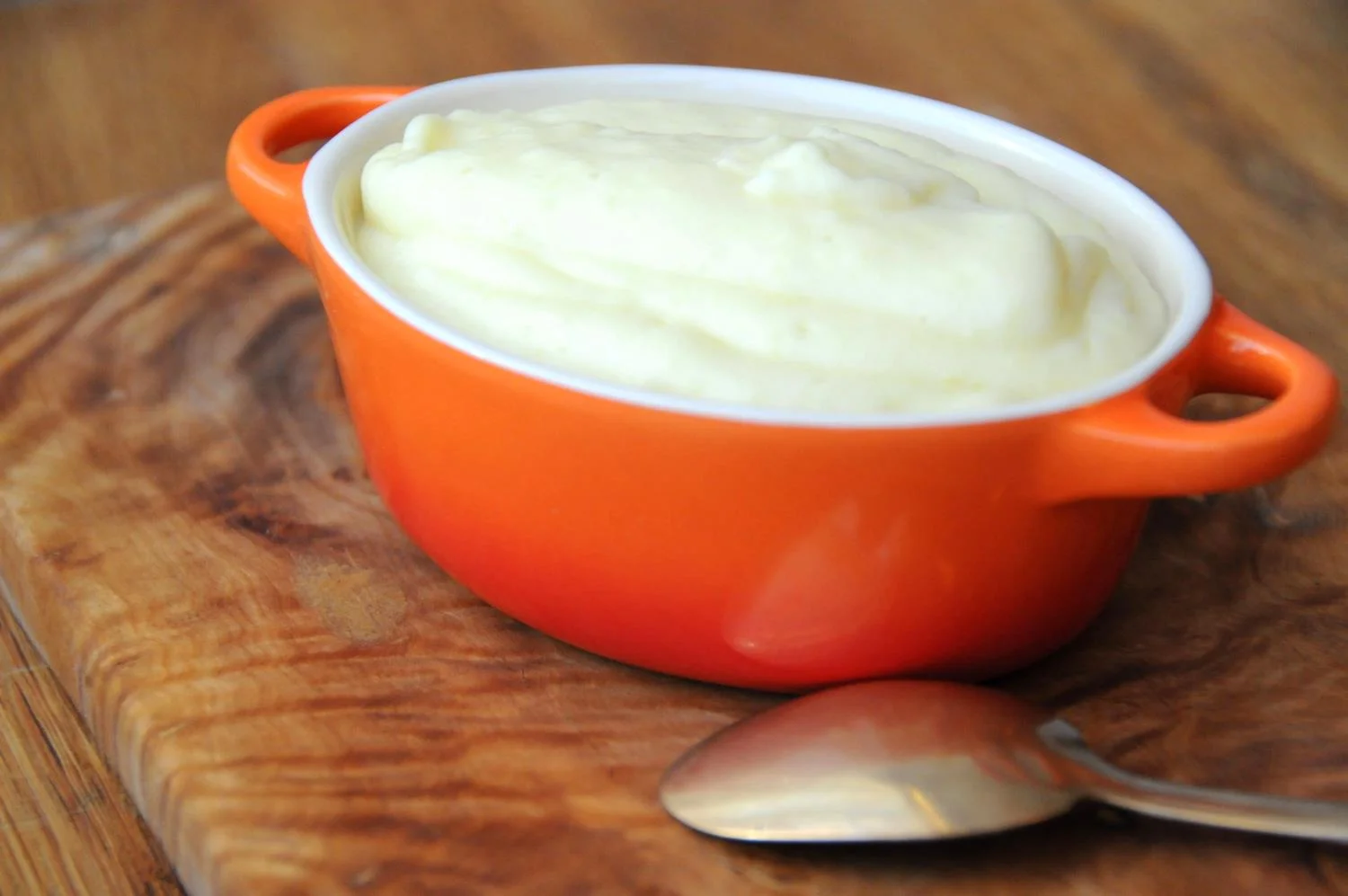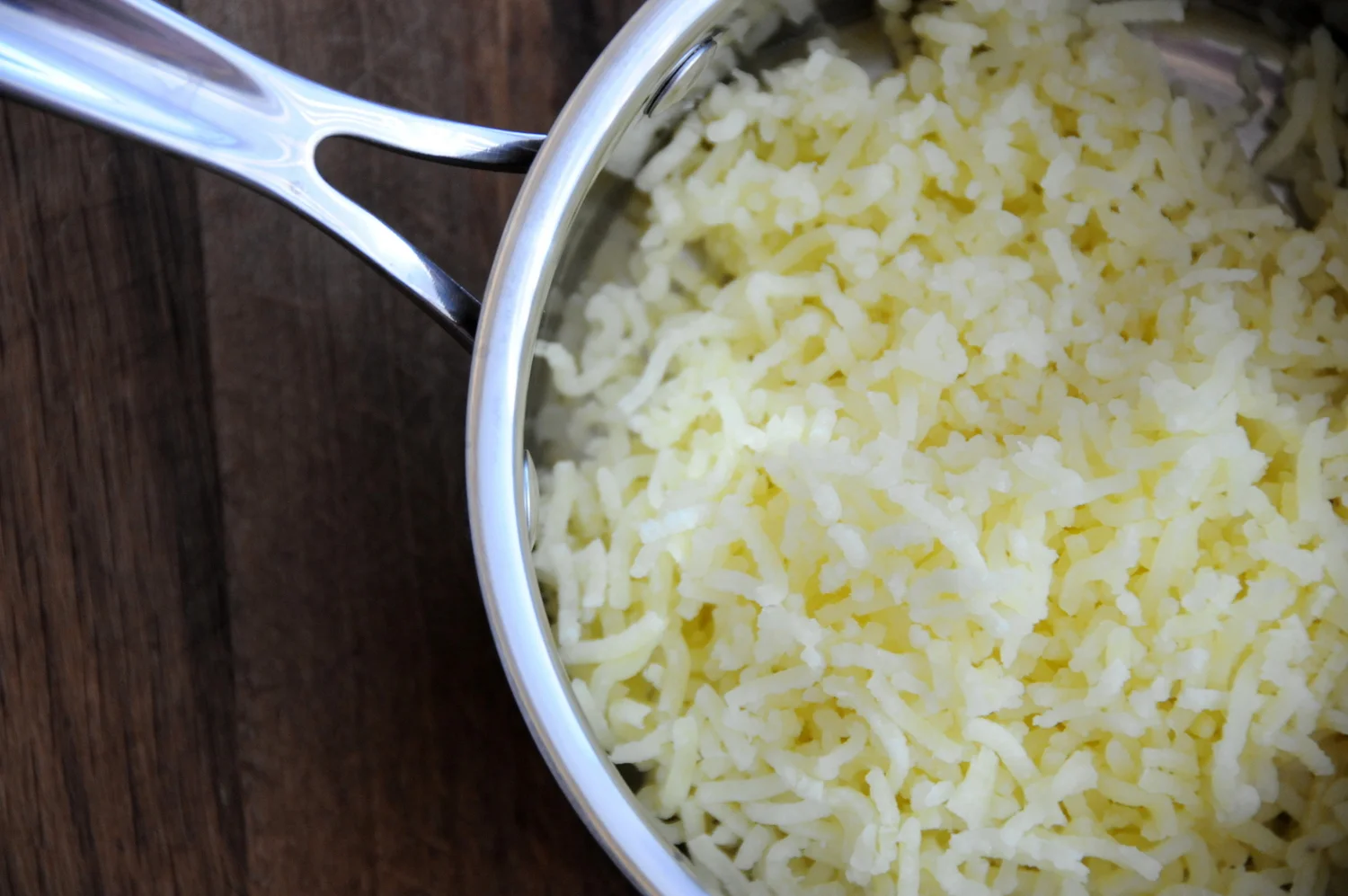Perfect (Pedantic) Mashed Potato
/ Back to Recipes
Everybody knows how to make mashed potato. Cut them up, boil them up, mash them up with butter and milk. This is absolutely fine – more than fine – sometimes it’s the only way – and it’s certainly one I resort to regularly. Somewhere along the line though, and I am not exactly sure when, I got the idea that regular mash was not really ok anymore. It might have been Joel Robuchon’s fault. His mash is rumoured to be 70% butter! Can it be true? Is it even physically possible? I am not sure and don’t plan on finding out (mainly because I may like it way too much). My ‘perfect’ mash does have considerably less butter than his, (though probably still a fair whack more than what might be considered ‘normal’), crucially though, what it does involve is a potato ricer. This is not high-tech, but it is still a piece of kitchen equipment and, for whatever reason, I am generally disposed to have a grudge against all such things. (Though I have recently relented on the stick blender front… and more worryingly, have developed and out and out obsession with the Queen of All Kitchen Things – the Bimbi – not that I’ve ever actually used, or even seen one, just spent hours on YouTube trying to figure out how it can possibly do all the things it says it does).
Anyway – potato ricer – it is the thing for mash without lumps. It’s not just the absence of lumps however; the riced potato takes on new texture in the finished dish – light, almost whipped. This though, is also thanks to the second, necessary piece of kit required by my ridiculously pedantic take on mash – a very sturdy whisk. Along with ricing the potato, drying this out over heat via whisking, before the addition of the butter, really makes a difference to the texture. As you’ll find, most of the steps of this recipe are about keeping water out of the potato. Watery-ness is the enemy of fluffiness.
So, apologies – if you are happy about the status of the mash in your life – please ignore me. If you love potatoes though, and are willing to jump through a few (tiny little) hoops to make them extra special, do please read on.
INGREDIENTS
(Serves 4 generously)
- 4 Large potatoes (washed), approx. 1.2kg
- 200g butter cubed
- 100mls full fat milk (please use full fat!)
- Salt
- White pepper
Boil the potatoes, skin on, in a large pan, for a very long time – at least 40mins or so, or until the potato is totally cooked through. To check this, insert a knife, and if it offers no resistance, the potato is cooked through. I will say though, perhaps avoid any knife checks that are likely to be too premature, as the idea of skin-on boiling the whole potatoes, is to keep water out of the potato as much as possible, and voodoo-ing it repeatedly is not going to be helpful to this cause.
When the potatoes are completely cooked through, (and ere on the over-done side if in doubt here… though not too overdone, as if the potato begins to break apart this will let water in), drain and let these cool down a touch until you can handle them. Peel the skin off by hand, or gently with a peeler, before cutting the potatoes into large chunks to feed through the potato ricer. I normally rice the potatoes directly into a saucepan. The next step is to dry the riced potato out as much as possible before adding the butter. This involves placing the pan over a medium-low heat. When the potato begins to steam, gently whisk it to stop it from sticking to the pan. While whisking the potato does have a tendency to get caught up in the whisk itself, but just knock this out by tapping it on the side of the pot and persevere. When the potato is dry it begins to develop a different texture, with ridges appearing on its surface just like those on freshly scooped ice cream. It will also begin to feel stickier against the whisk. Here, you can begin to add the cubes of butter.
Continue whisking while adding the butter, this will bring the potato together to form a smooth dough.
The final step is to loosen with milk to bring the mash to your desired consistency. Go bit by bit here, and stop when it seems right to you. Some dishes require a stiffer mash than others, and the preferable consistency is largely a matter of personal taste I think.
Add the salt, and white pepper – again to taste, but I don’t recommend being too shy of either… Taste-test as you go, and perhaps keep in mind whether the butter you used was salted or unsalted.
Serve in great big scoops with something delicious on top… Or eat it on its own, from the pan, cause somehow things do always taste amazing this way…A yummy variation would be to add mashed roasted garlic to the riced potato, I haven’t actually tried this yet, though don’t see how you could go wrong…


